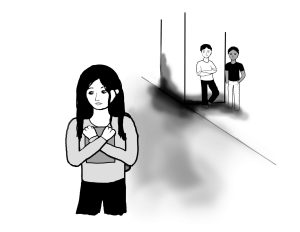Increasing concerns about Antiquity and Modernity, the required two-semester first-year course more commonly known as Core, have culminated in several significant changes to the course, including a new name: Encounters. These modifications, effective in the 2009-2010 academic year, follow concerns that core has become outdated. Whitman’s signature class will now emphasize teaching the old curriculum in a new manner, and will introduce different literary works.
According to Student Representative to the General Studies Committee (GSC), junior Will Canine, the new course title was created with different interactions in mind.
“Encounters are how knowledge is created and how ideas flow between people. Examining that is now the idea we want to take forward with our new first year program,” he said.
The GSC is a board of faculty with two student representatives, whose role is to evaluate Whitman’s required courses and distribution requirements. While the GSC continuously re-examines Core, a considerable push for change began four years ago. The GSC formed several new models for Whitman’s core curriculum, and ended up creating Encounters, which was passed in a faculty vote last fall.
Antiquity and Modernity’s emphasis on western world views has remained unchanged over the past 18 years since its inception in 1990, a primary reason behind the revisions. Dwindling enthusiasm among professors teaching the same works year after year led to the upcoming shift.
“Antiquity and Modernity has been losing faculty support, because they [professors] want to teach subjects less constrained in the heavy-handed traditions of Western academia,” said Canine.
Canine noted that “unfair disparities in student experience” from the wide range of experienced Core professors significantly impacted the decision as well. Some of Whitman’s highly regarded professors are no longer willing to teach the course, as a result of the cultural shift in American higher education.
The growing cultural diversity within Whitman College and in the rest of the world has led to the removal of the word “Western” from the new course description.
Professor Nicole Simek of the GSC, who drafted the description, sees it as having the potential to open possibilities for introducing new texts not normally defined as western.
“We are living in a western tradition here in the United States, and that history doesn’t need to be lost; we still need to study it. But we’re still living in a globalized world. And we were concerned that the course wasn’t adequately preparing students to think about their positions as global subjects.”
Though Core will likely incorporate new works, Simek thinks Encounters will provide a means for reinterpreting existing curriculum as well. “I could see a lot of the texts taught again, but in a new framework.”
Apart from the name, another significant change to the course is the introduction of a rotating theme. The theme is designed to be broad enough to promote interdisciplinary thinking and narrow enough to provide structure to the course.
The rotation of themes will also allow for more flexibility of interpretation, influencing the way the texts are approached. Next year, the theme will be “Encounters Ancient and Modern.”
Admittedly, the theme is similar to the current “Antiquity and Modernity,” but Core Coordinator Professor Mary Ann O’Neil acknowledges that this is because changes to curriculum are a slow and arduous process.
“The Core teachers are not going to be able to, in one year, learn two completely new syllabi, and do it well. So that’s the idea, a gradual change, but with significant curricular changes each semester,” said O’Neil.
Other potential future themes being considered include “The West and its Others” and “Science and the Arts.”
The course name change and deliberately vague description creates some exciting possibilities.
“Encounters doesn’t have to be Western, but it can be. It doesn’t have to be Eastern, but it can be. It can be geared toward looking specifically at justice, or looking at environmental change,” said Canine.
Professor Simek said that the change has opened up the potential to introduce different types of media into the Core program, such as music or art, as well as more scientific texts.
The full course description for Encounters will be available in the new course catalogue. Students wishing to get involved on the GSC should apply for openings as Student Representative next year.








Anne McCullough Kelly • Mar 4, 2009 at 5:21 pm
From the words of a 2001 alum steeped in the tradition of the “old” Core, I am thrilled that the course is evolving and taking on a more diverse and inclusive tone. Thank you students and faculty who recognize how academia can respond to the changing world. I wish I could return and experience Encounters!
I also want to recognize that this wonderful article was written by my sister!